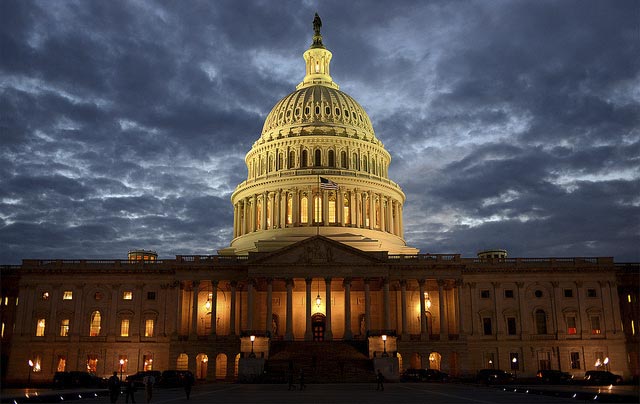
Support justice-driven, accurate and transparent news — make a quick donation to Truthout today!
Americans are seriously lacking faith in the system – in fact, trust in the U.S. government is at an all-time low. According to the latest CNN poll, just 13% of Americans agree that the U.S. government “can be trusted to do what is right always or most of the time.”
Instead, nearly everyone (75%) says that the government works properly just “some of the time,” a troubling figure. Certainly, a healthy, functioning democracy would not brew so much distrust amongst its population.
“The number who trust the government all or most of the time has sunk so low that it is hard to remember that there was ever a time when Americans routinely trusted the government,” said Keating Holland, the head of CNN Polling.
This is a notable departure from the legitimate trust that existed decades ago. Through the 1960s, Americans held favorable opinions toward the government. The majority of respondents in the ’60s said they trusted the government “always or most of the time.”
That all changed when the Watergate scandal struck. By 1974, only 36% of Americans expressed good faith in the government. That number has never rebounded above 50% since then, with one prominent exception: the period immediately following the September 11 attacks in 2001. While the outpouring of collective patriotism resulted in an upswing in the figures temporarily, the numbers have dropped steadily since, presumably impacted in part by the U.S.’s hasty decision to declare war with Iraq, a country uninvolved in 9/11.
Speaking of Watergate, in conjunction with the scandal’s 40th anniversary, CNN also polled Americans about their feelings on Watergate. The age gap on this issue is quite telling. Americans over the age of 40 declared Watergate a major problem, while those under 40 labeled the incident politics as usual. Of course, the fact that younger American citizens are collectively shrugging at Watergate isn’t a sign that they view that sort of behavior as acceptable. More accurately, it reflects the growing distrust toward the government and the belief that underhandedness like Watergate is standard practice in modern politics.
In addition to government-related questions, the poll asked Americans whether they had faith in the private sector. The amount of Americans who trust corporations is similarly abysmal: just 17%. That said, the correlation between these low fingers isn’t altogether surprising considering that the unholy alliance between corporations and U.S. politicians prompts many Americans to look at them as essentially the same entity.
Matching Opportunity Extended: Please support Truthout today!
Our end-of-year fundraiser is over, but our donation matching opportunity has been extended! All donations to Truthout will be matched dollar for dollar for a limited time.
Your one-time gift today will be matched immediately. Your monthly donation will be matched for the whole first year, doubling your impact.
This matching gift comes at a critical time. As Trump attempts to silence dissenting voices and oppositional nonprofits, reader support is our best defense against the right-wing agenda.
Help Truthout confront Trump’s fascism in 2026, and have your donation matched now!